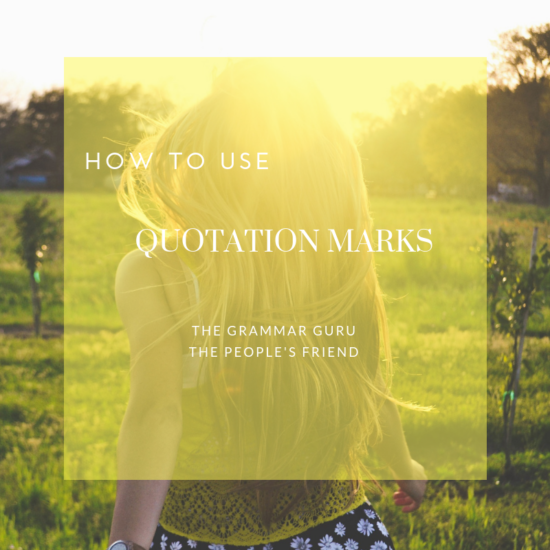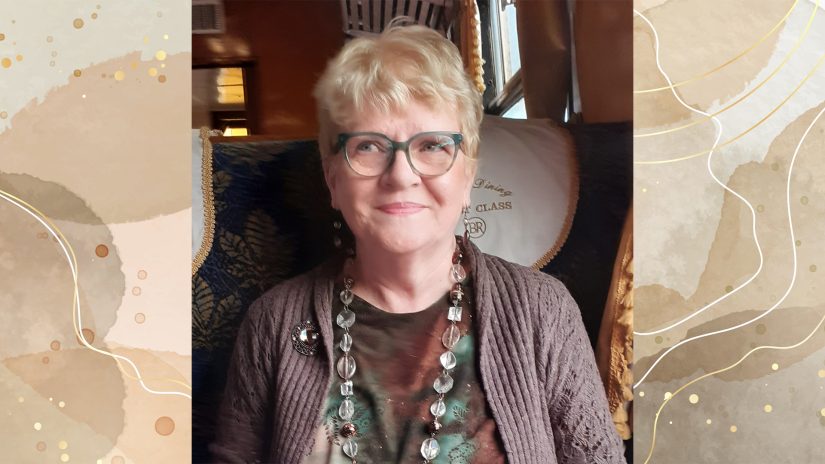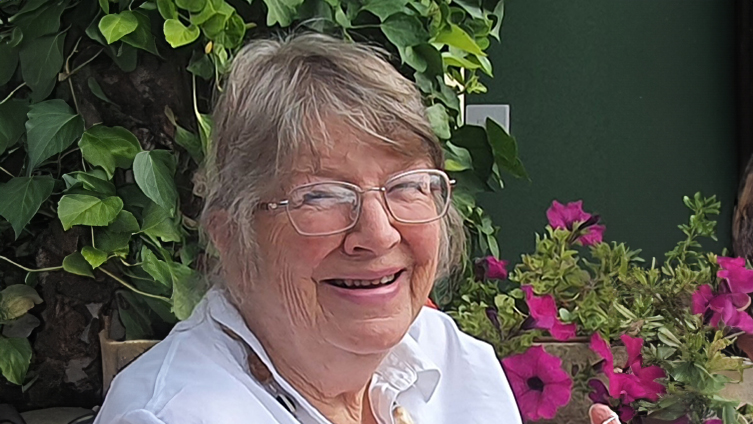
You’ve finished your latest story, and you are rightly proud of it. You’re giving it a final once-over before sending it off to the “Friend” fiction team, looking for those annoying little mistakes that creep in from time to time. A missed full stop; a misplaced apostrophe; a semicolon instead of a colon. But how closely do you consider the quotation marks?
“Quotation marks are easy to use,” you think to yourself. “Aren’t they?”
The answer is “yes”! But, as with all things grammatical, there are a few rules you should follow to make sure you’re getting it right every time.
Quotation marks (or speech marks) are generally* used in three circumstances:
To denote the exact words spoken by character: “I am hungry,” Iain said.
For the names of things like books, films, television shows or plays: “The Man Who Would Be King”, not The Man Who Would Be King.
When quoting the exact words from a secondary source: “The best-laid schemes o’ mice an’ men gang aft agley”, according to Robert Burns.
Single or double?
From your own reading, you’ll notice that some books or magazines use single quotation marks (‘) in the above circumstances, while some use double (“).
Neither of these uses is incorrect. Instead, it’s a question of house style.
At the “Friend”, we only ever use single quotation marks when a character directly quotes another, or when they refer to the names of things like books, films, television shows or plays in their dialogue.
So, while “The Man Who Would Be King” is correct (it is not someone’s exact words, spoken or written).
“Have you seen ‘The Man Who Would Be King’?” is also correct.
And, technically, “He said, ‘I have seen “The Man Who Would Be King”’.” is also correct. It is pretty messy, however, and we would definitely advise rewording!
Which brings us on to the most complicated part of using quotation marks. . .
Where does the punctuation go?
At the “Friend”, it is our style to only introduce who is speaking at the end of a quotation, rather than at the beginning.
So, while the below are both grammatically correct:
Iain said, “I am hungry.”
Iain said: “I am hungry.”
We prefer:
“I am hungry,” Iain said.
(Another note on writing for the “Friend”: it is always “Iain said”, not “said Iain”!)
Deciding whether punctuation should be placed inside or outside the quotation marks may seem like a daunting task – but like a great many daunting tasks, taking a logical, methodical approach will see you through.
Let’s look at some examples:
“I am hungry?” Iain asked.
Here, Iain is asking a question. The question mark therefore falls inside the quotation marks, and the sentence ends with a full stop.
What could Iain mean by “I am hungry”?
In this example, it is the sentence that is a question, rather than the quotation. The sentence therefore ends with a question mark as normal.
“I might,” Iain said, “be hungry.”
In this example, the inclusion of “Iain said” adds a pause in the dialogue. The character’s pause begins at the first comma (keep an eye on the Grammar Guru for an upcoming post on using commas), therefore this comma is included inside the quotation marks.
* Quotation marks can also be used to express the idea of alleged or so-called
You can also use quotation marks to indicate when something being said may not be quite true.
For example, it would be perfectly reasonably to say: Iain allegedly ate too much.
You could, however, use quotation marks to convey to same idea: Iain “ate too much”.
Be careful you don’t fall into the double-negative trap, though. It would cast doubt in the wrong place to say: Iain “allegedly” ate too much. . .
Using quotation marks correctly will avoid a great deal of confusion for the reader, especially if your story is full of zippy dialogue! Good luck!
Did you miss last week’s post on apostrophes? Catch up here!
Check out more from the Grammar Guru by clicking on the tag below.




